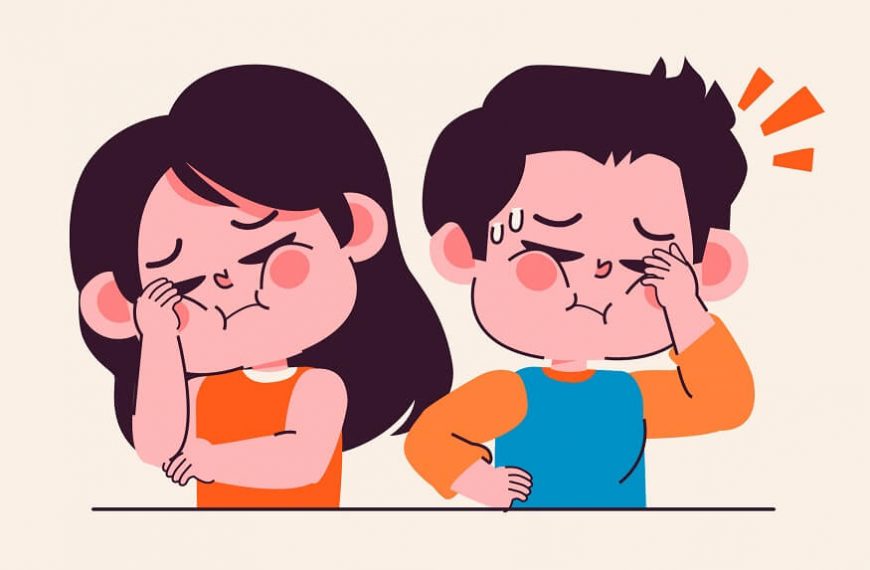Childhood Stress: Causes, Symptoms, Effects
Stress is not exclusive to adults. An increasing body of research underscores the fact that children, too, experience stress, often with long-lasting effects. By understanding childhood stress symptoms and the causes of stress in childhood, parents and caregivers can take steps to address these issues and promote healthy development. This article will explore the key triggers of stress in children, signs to identify them, and the potential long-term effects of childhood stress.
Childhood Stress Symptoms: Identifying the Early Signs
Spotting childhood stress symptoms can be a daunting task, mainly because children might not possess the verbal skills or emotional literacy to express what they’re feeling. However, certain indicators can help identify stress in children. These include mood swings, behavioral changes, physical ailments like frequent headaches or stomach aches, changes in eating and sleeping patterns, and a sudden decline in academic performance.
For instance, a typically energetic child may suddenly become withdrawn and quiet, or a usually well-mannered child might start acting out. Understanding these changes as potential childhood stress symptoms is the first step towards helping children cope better.
Causes of Stress in Childhood: The Common Triggers
In this section, we’ll delve deeper into the common triggers that contribute to the causes of stress in childhood.
Academic Pressure: In our fast-paced, achievement-driven society, academic pressures can mount. There is constant emphasis on tests, grades, and university admissions, which start at an alarmingly young age. This pressure can transform into a source of chronic stress for children. For example, children might spend long hours studying to achieve high grades, sacrificing essential relaxation and playtime. The fear of not living up to expectations can manifest as anxiety, irritability, and even physical symptoms such as headaches or stomach aches.
Family Dynamics: The family environment significantly impacts a child’s mental health. Divorce or separation of parents can be traumatic and confusing for a child, leading to feelings of instability and stress. Similarly, the arrival of a new sibling might make the firstborn child feel neglected or threatened, leading to behavioral changes. In more severe cases, witnessing or experiencing domestic violence can lead to severe childhood traumatic stress.
Social Pressures: Navigating social relationships is a critical part of growing up. However, the associated challenges, like bullying or peer pressure, can cause substantial stress. If a child is being bullied, they may feel helpless, anxious, and afraid. Similarly, the desire to fit in and be accepted by peers can place immense pressure on a child to conform to specific behaviors or trends, leading to stress.
Traumatic Events: Accidents, natural disasters, or experiences of physical or sexual abuse are deeply traumatic. These incidents can lead to childhood traumatic stress, which can be severe and persist long after the event has passed. A child who has witnessed a destructive house fire, for example, may develop a deep-seated fear of fire and experience anxiety at the sight or smell of smoke.
Long-Term Effects of Childhood Stress
Understanding the long-term effects of childhood stress is paramount to recognising the importance of timely intervention and management.
Physical Health: Chronic stress during childhood can translate into various health problems later in life. These can range from obesity, due to stress-related overeating, to heart diseases, brought on by the body’s prolonged stress response.
Mental Health: One of the most alarming long-term effects of childhood stress is its impact on mental health. Childhood stress can serve as a precursor to anxiety disorders, depression, and post-traumatic stress disorder (PTSD). For instance, a child exposed to chronic academic stress might develop an anxiety disorder, characterized by excessive worry and fear.
Cognitive Impact: Persistent stress can also impact a child’s cognitive development, hampering learning and memory capabilities. If a child is always preoccupied with their stressors, they may have less cognitive capacity for schoolwork, leading to difficulties in concentration, problem-solving, and information recall.
Prolonged exposure to stress during childhood can have lasting implications. The long-term effects of childhood stress can manifest physically, emotionally, and cognitively. Physically, it can lead to chronic health problems like heart disease and obesity. Emotionally, it can result in mental health disorders such as anxiety and depression. Cognitively, chronic stress can impact learning and memory.
For instance, a child facing constant academic pressure may grow into an adult with chronic anxiety issues, constantly fearing failure. Understanding these long-term effects of childhood stress helps in emphasizing the need for early intervention.
Childhood Traumatic Stress: An Added Complexity
While all forms of stress are detrimental, childhood traumatic stress warrants particular attention. This form of stress results from traumatic events that overwhelm a child’s ability to cope. The resulting childhood stress symptoms can be severe and long-lasting, and include emotional distress, flashbacks, nightmares, and even physical symptoms like heart palpitations and sweating.
For example, a child who has experienced a severe car accident might subsequently exhibit heightened fear and anxiety around vehicles or traveling. Their school performance might decline due to recurring flashbacks of the event disrupting their concentration.
Fostering a supportive environment can significantly alleviate the causes of stress in childhood. By maintaining open lines of communication, parents and caregivers can reassure children that their feelings are valid and that they are not alone in their struggles. Moreover, teaching children stress management techniques such as mindfulness, deep breathing exercises, and progressive muscle relaxation can empower them with tools to cope with stress effectively.
Addressing childhood traumatic stress might require professional help, including therapy or counseling. These resources can provide the child with a safe space to express their feelings and learn coping strategies, thus helping to mitigate the long-term effects of childhood stress. The proactive involvement of adults in addressing and managing stress in children is crucial for their wholesome growth and development.
Conclusion
Stress in children, often overlooked or underestimated, poses a significant threat to their well-being and development. However, by identifying childhood stress symptoms and understanding the causes of stress in childhood, we can mitigate its impact. In cases of childhood traumatic stress, professional help should be sought without hesitation. The knowledge of the long-term effects of childhood stress underlines the importance of addressing this issue promptly. By doing so, we can foster a nurturing environment in which our children can thrive.
At EuroKids Preschool, we believe in providing an enriching learning environment for the little ones, to kickstart their early years with confidence.















